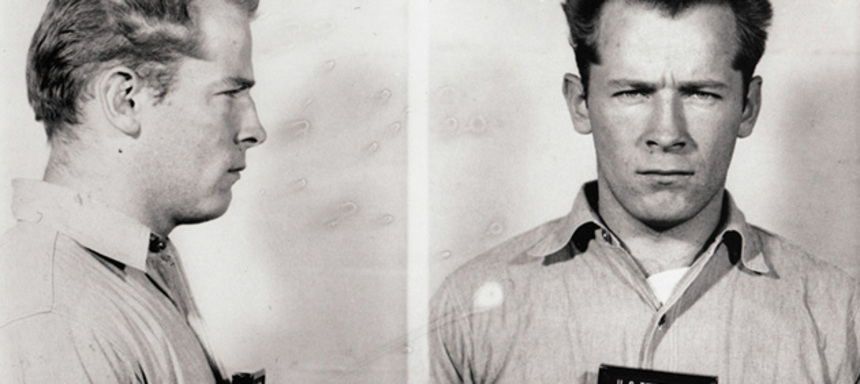Sundance 2014 Review: WHITEY Presents Criminal Ethics As A Spectrum Of Grey

At its best, this film joins the pantheon of great crime documentaries, spelling out the miscues and manipulations, raising a fundamental question - was the justice department and the FBI culpable in allowing Bulger to live the life of a murderous gangster and eventually to escape justice for decades?
The defense attorneys for Bulger throw out the worth "truth", saying that their client simply wants to lay bare the actual events. Wrapped up in the case, Bulger admits freely to a life of racketeering, corruption, even murder, but refuses two charges laid at his feet - that he is the murderer of women, and that he's a rat.
In other words, he'll do the time for the crimes, but refuses to accept that the myth of the good criminal will be sullied by these out-of-bounds actions. This is a man with a code, we're led to believe, a criminal operating within a set of rules that would allow him to shoot a man in the face, but would never harm an ex-girlfriend or, even worse, willingly cooperate with the police.
It is this balance between a criminal engaged in over myth-making colliding with the fact that, frankly, Bulger's team makes an extremely effective case. The prosecution is given ample time to present their side of the argument, and they come off as both arrogant and dismissive. It's easy to fall for the charismatic Bulger, heard here in a unique interview from his prison, as well as the mounting evidence from the defense team.
Yet like any of these cases, the closer you look the seemingly more complicated things appear to be. What may seem as a conspiracy by the justice department to allow Bulger to testify for fear of uncovering corruption within the very system could equally be read as a judge refusing to turn the trial into a circus of wild accusations and grandstanding histrionics. We don't know if there's a there there, for in keeping his silence when he was not fully granted a freedom to espouse on any topic he wished, we are left wondering just what truths were to be uncovered.
Thus, as both a documentary and a testimony, the core truths that Whitey uncovers are elusive. This is where Berlinger and his team excel, for in constructing this unapologetically complicated narrative they allow a sensitive audience to feel first-hand the pulling tides of the narrative, to be swayed back and forth as both victim and victimizer spell things out. Crime in South Boston is a dirty business, and the dirtiest business of all is maintaining that reputation. If a rat can't rat out a rat, then we've fallen into a bitter circle of epistemological retribution, a one-upsmanship of mythologizing that gets not to the physical nature of the man, but the very history that's to be written.
Naturally, the documentary itself plays a major role in the writing of this history, and while is certainly raises a number of issues, it maintains both an objectivity and a skepticism for all involved. This may frustrate some audiences looking for some binary, black and white, yes or no answers. Nothing is that simple in a world that Whitey inhabits, and it is this spectrum of grey, the moral middle that this documentary effectively articulates.
If the best crime documentary is meant to be more provocative than polemical, if it is to be a film that articulates rather than advocates, than Berlinger's Whitey just may be one of the best. Like Morris or Herzog, Berlinger has emerged as one of the great documentarians of the age, one with a keen eye and strong sense of narrative drive. Equally, he is unafraid to have a point of view, yet allows the audience enough materials to draw their own conclusions, to see that the film is but a small slice of a larger picture, and the contradictions and false testimonies are in fact the core element of the case.
For it is out of these contradictions, the messy back-and-forths that a larger picture is drawn, one of manipulation and corruption from all involved, victim and victimizer alike. It is not a question of forgetting that Bulger is a muderous thug, it's that what's at stake in having allowed him to be such a thug for so many decades might well be an even larger crime.
In the end, we're left with more questions than when we started, and that may not be such a bad thing. For the history of both Bulger and the FBI has yet to be fully written, and Whitey does a remarkable job of showing just how much is left to be done, and how difficult a job it will be to tease out fact from myth. Whatever the outcome decades hence, this is a fabulous slice of the here-and-now, presented in a complicated yet compelling way.

Do you feel this content is inappropriate or infringes upon your rights? Click here to report it, or see our DMCA policy.





